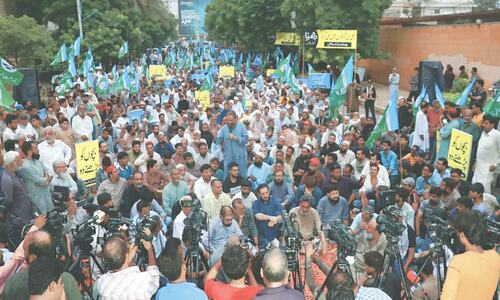ISLAMABAD: At a time when taxpayers are being crushed under high tax rates, it has come to the fore that the Independent Power Producers (IPPs) received substantial tax breaks to the tune of Rs1.217 trillion from the mid-1990s to 2023-24, Dawn has learned from official sources.
The tax exemption for IPPs goes above the capacity payments, which are expected to be in the range of Rs2.091tr in the current fiscal year. These IPPs are owned by 40 influential families with a direct or indirect relationship to those in the power corridors.
Both domestic and foreign companies enjoy corporate tax exemption on profits and gains earned from electric power plants established after July 1 1988.
Since then, both democratic and autocratic regimes have implemented around five power policies, establishing 106 IPPs with a lifetime tax exemption concession.
Capacity payments projected to be over Rs2tr in FY25
Official records available to Dawn showed that successive governments provided data of tax exemption to IPPs in economic surveys until 2018-19, but after that, when the value of tax exemptions increased, they stopped disclosing the information.
Instead, the exemption value was combined with other sectors to conceal it from people.
According to renowned economist Dr Hafeez Pasha’s calculations, the worth of these tax exemptions from the mid-1990s to 2017-18 was Rs1tr. He estimated this amount as part of his research on the political economy of inequality in Pakistan.
Mr Pasha stated that IPPs are a prime example of a favourable pricing mechanism, with power tariffs set in a way that the government fully covers their capacity charges and fuel costs.
This cost-plus pricing method has significantly reduced the market risk for IPPs due to potential capacity under-utilisation. Some have enjoyed a 25-30pc return on equity in various years.
This policy incentive opened the floodgates for establishing IPPs in the country.
Official sources said that five major IPPs were established as a result of the power policy in the post-1988 period until 2002. Of these, four IPPs have finished their power purchasing contracts, leaving only one: the Hub Power Company, the country’s first IPP, which continues to produce electricity at the same concessions.
During the autocratic rule of retired General Pervez Musharraf, a total of 10 new IPPs were established between 2002 and 2008. During the PPP government from 2008 to 2013, 10 more were set up to generate electricity while enjoying tax exemptions.
There was a significant increase in the number of IPPs during the government of PML-N from 2013 to 2018, with a total of 55 new power plants being set up. From 2018 to 2023, an additional 40 were established in the governments of PTI and PDM.
Based on the data from economic surveys, it has been reported that the tax exemption for IPPs amounted to approximately Rs51.5bn from 2014 to 2016.
In the subsequent two years, the tax exemption amount dropped to Rs18bn from 2017 to 2019. The government did not justify the decrease in the exemption amount. In FY20, the exemptions for IPPs swelled to Rs26.88bn, which significantly increased to Rs47.528bn in FY21.
The rise in exemption value can be attributed to the establishment of more power plants. In FY22, the exemption limit decreased to Rs37.45bn due to the renegotiation of IPP contracts by the PTI government.
The exemptions climbed to Rs56.02bn in FY23 but reduced to Rs30.23bn in FY24.
Published in Dawn, August 20th, 2024












































Dear visitor, the comments section is undergoing an overhaul and will return soon.